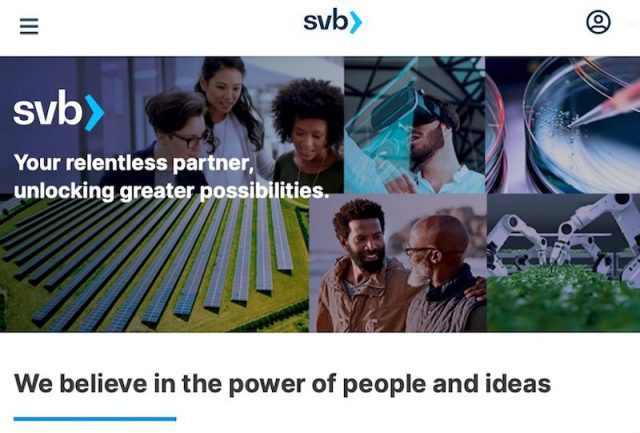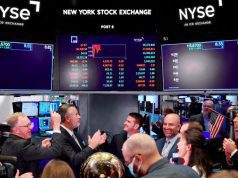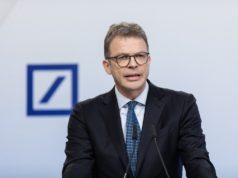The 2025 Investment Day | 2025 Family Office Summits | Family Office Circle
Investment / Alternatives Summit - March / Oct / Nov
Investment Day - March / July / Sept / Oct / Nov
Private Wealth Summit - April / Oct / Nov
Family Office Summit - April / Oct / Nov
View Events | Register
This site is for accredited investors, professional investors, investment managers and financial professionals only. You should have assets around $3 million to $300 million or managing $20 million to $30 billion.
$1.3 Trillion Norway Sovereign Wealth Fund Norges Bank Investment Management & $93 Billion Sweden Pension Fund AP-Fonden AP7 Lead Shareholders Class-Action Complaint & Lawsuit Against Silicon Valley Bank, Ex-CEO & CFO & KPMG for Concealing True Financial Standing from Public & Ignoring Risks of Rising Interest Rates, Investors Lost $24 Billion in Market Value
22nd January 2024 | Hong Kong
Norway sovereign wealth fund Government Pension Fund Global managed by Norges Bank Investment Management with $1.43 trillion AUM & Sweden pension fund AP-Fonden with $93 billion AUM (AP7) are leading and have filed a shareholders class-action complaint & lawsuit against Silicon Valley Bank for securities violation, concealing true financial standing from public & ignoring risks of rising interest rates, with investors losing $24 billion in market value. Filing Amendments (16/1/24): “Lead Plaintiffs Norges Bank and Sjunde AP-Fonden (collectively, “Lead Plaintiffs”) and additional plaintiffs Asbestos Workers Philadelphia Welfare and Pension Fund and Heat & Frost Insulators Local 12 Funds (collectively, with Lead Plaintiffs, the “Plaintiffs”), by and through their counsel, bring this action based on violations of the federal securities laws. As further described below, this is a case with widespread implications that harmed the financial markets. The spectacular collapse of SVB Bank—then the second-largest bank failure in U.S. history—caused SVB investors billions in losses and undermined confidence in banks worldwide, leading to the subsequent rapid decline of other major financial institutions and impacting the global economy. SVB itself is now bankrupt, and its former executives as well as other critical market participants that utterly failed in their role as gatekeepers—including SVB’s Board of Directors; SVB’s longtime auditor, KPMG LLP; and the banks that underwrote billions of dollars in offerings of SVB securities—must be held to account for the harm they caused to investors.” 2023 Filing: “This is a securities class action filed on behalf of (i) all persons and entities who purchased or otherwise acquired the common stock of Silicon Valley Bank Financial Group, the parent company of Silicon Valley Bank (“SVB” or the “Bank”) between January 21, 2021 and March 10, 2023, inclusive (the “Class Period”), and were damaged thereby; and (ii) all persons or entities who purchased or acquired SVB securities in or traceable to SVB’s securities offerings completed on or about February 2, 2021, March 25, 2021, May 13, 2021, August 12, 2021, October 28, 2021, and April 29, 2022 (collectively, the “Offerings”), and were damaged thereby. The action alleges violations of the Exchange Act of 1934 and violations of the Securities Act of 1933 against certain of SVB’s senior executives, members of the Bank’s Board of Directors, the underwriters of SVB’s public offerings, and the Bank’s auditing firm KPMG, LLP (collectively, “Defendants”). The Honorable James Donato is presiding over this case.” On Silicon Valley Bank ex-CEO & CFO: “The Exchange Act claims are brought against Silicon Valley Bank former CEO, Gregory W. Beckerand SVB’s former CFO, Daniel J. Beck. Additional news reports followed detailing how Defendants Becker (CEO) and Beck (CFO) reaped more than $35 million in proceeds through insider stock sales—all before the public learned about SVB’s deficient internal controls and before the price of the Bank’s stock crashed. In just the two weeks before the Bank’s collapse, these two executives unloaded more than $4 million in their personal holdings.” In 2023 April, KPMG, Goldman Sachs, Morgan Stanley, Bank of America, Silicon Valley Bank CEO Greg Becker, Silicon Valley Bank directors & officers had been sued (7th April 2023) for misrepresenting the strength of Silicon Valley Bank balance sheet, liquidity & risks. KPMG is being sued as the role as auditor and Goldman Sachs, Bank of America, Morgan Stanley and Keefe, Bruyette & Woods had been sued as underwriters. Before Silicon Valley Bank collapsed, the bank was raising $2.25 billion in capital with Goldman Sachs, Bank of America, Morgan Stanley and Keefe, Bruyette & Woods as underwriters. A few weeks before Silicon Valley Bank collapsed, KPMG as auditor had signed off Silicon Valley Bank 2022 annual report, without highlighting risks of Silicon Valley Bank declining deposits and debt securities valuation concerns. The filing was submitted on 7th April 2023. Latest filing 16th January 2024 | Original filing April 2023
“ $1.3 Trillion Norway Sovereign Wealth Fund Norges Bank Investment Management & $93 Billion Sweden Pension Fund AP-Fonden AP7 Lead Shareholders Class-Action Complaint & Lawsuit Against Silicon Valley Bank, Ex-CEO & CFO & KPMG for Concealing True Financial Standing from Public & Ignoring Risks of Rising Interest Rates, Investors Lost $24 Billion in Market Value “
Caproasia Access | Events | Summits | Register Events | The Financial Centre
The 2025 Investment Day | 2025 Family Office Summits | Family Office Circle
Basic Member: $5 Monthly | $60 Yearly
Newsletter Daily 2 pm (Promo): $20 Monthly | $180 Yearly (FP: $680)
Hong Kong | Singapore
March / July / Sept / Oct / Nov
Private Equity, Hedge Funds, Boutique Funds, Private Markets & more. Join 20+ CIOs & Senior investment team, with > 60% single family offices with $300 million AUM. Taking place in Hong Kong and in Singapore. Every March, July, Sept, Oct & Nov.
Visit | Register here
10th April & 16th Oct Hong Kong Ritz Carlton | 24th April & 6th Nov Singapore Amara Sanctuary Resort
Join 80 single family offices & family office professionals in Hong Kong & Singapore
Links: 2025 Family Office Summit | Register here
March / Oct / Nov in Hong Kong & Singapore
Join leading asset managers, hedge funds, boutique funds, private equity, venture capital & real estate firms in Hong Kong, Singapore & Asia-Pacific at the Investment / Alternatives Summit. Join as delegate, speaker, presenter, partner & sponsor.
Visit | Register here
April / Oct / Nov in Hong Kong & Singapore
Join CEOs, CIOs, Head of Private Banking, Head of Family Offices & Product Heads at The Private Wealth Summit. Join as delegate, speaker, presenter, partner & sponsor.
Visit | Register here
In re SVB Financial Group Securities Litigation

- Court: United States District Court for the Northern District of California
- Case Number: 23-cv-01097
- Class Period: 01/22/2021 – 03/10/2023
- Case Leaders: Salvatore J. Graziano, Gerald H. Silk, Hannah Ross, Jeroen van Kwawegen, Avi Josefson, Jonathan D. Uslaner, Scott R. Foglietta, Jesse L. Jensen
- Case Team: Emily A. Tu, Mathews R. de Carvalho, Jasmine Cooper-Little
This is a securities class action filed on behalf of (i) all persons and entities who purchased or otherwise acquired the common stock of Silicon Valley Bank Financial Group, the parent company of Silicon Valley Bank (“SVB” or the “Bank”) between January 21, 2021 and March 10, 2023, inclusive (the “Class Period”), and were damaged thereby; and (ii) all persons or entities who purchased or acquired SVB securities in or traceable to SVB’s securities offerings completed on or about February 2, 2021, March 25, 2021, May 13, 2021, August 12, 2021, October 28, 2021, and April 29, 2022 (collectively, the “Offerings”), and were damaged thereby. The action alleges violations of the Exchange Act of 1934 and violations of the Securities Act of 1933 against certain of SVB’s senior executives, members of the Bank’s Board of Directors, the underwriters of SVB’s public offerings, and the Bank’s auditing firm KPMG, LLP (collectively, “Defendants”). The Honorable James Donato is presiding over this case.
On April 7, 2023, Bernstein Litowitz Berger & Grossmann LLP (“BLB&G”) filed a class action lawsuit for violations of the federal securities laws in the U.S. District Court for the Northern District of California, captioned City of Hialeah Employees’ Retirement System, Asbestos Workers Philadelphia Welfare and Pension Fund, and Heat & Frost Insulators Local 12 Funds v. Becker, No. 3:23-cv-1697 (N.D. Cal.). On November 30, 2023, the Court appointed Lead Plaintiffs and approved BLB&G to serve as co-lead counsel. Lead Plaintiffs Norges Bank and Sjunde AP-Fonden and Additional Plaintiffs Asbestos Workers Philadelphia Welfare and Pension Fund, and Heat & Frost Insulators Local 12 Funds filed the amended, operative complaint on January 16, 2024. Defendants’ motion to dismiss is due February 15, 2024.
Background of Exchange Act Claims
The Class Period begins on January 21, 2021, when SVB announced its full-year 2020 financial results, which included materially false or misleading statements as described herein. Just days later, on January 26, 2021, SVB announced that the Bank would raise $1.25 billion from debt and preferred stock offerings. In the documents promoting those offerings, the Defendants also made a series of materially false representations about the Bank’s risk management, including specifically as to liquidity and interest rate risks. Over the following months and years during the Class Period, the Exchange Act Defendants repeated and amplified these false representations.
Contrary to the Exchange Act Defendants’ representations during the Class Period, SVB suffered from rampant weaknesses in its controls around risk management, liquidity, and interest rate risk. A Federal Reserve April 28, 2023 postmortem report analyzing the Bank concluded that these weaknesses were “linked directly” to its ultimate collapse at the end of the Class Period:
- Risk Management: SVB’s risk management controls suffered from “thematic, root cause deficiencies related to ineffective board oversight, the lack of effective challenge by the second line independent risk function, insufficient third line internal audit coverage of the independent risk management function, and ineffective risk reporting”;
- Liquidity: SVB’s liquidity risk management suffered from “foundational shortcomings in three key areas”: liquidity stress testing, liquidity limits framework, and contingency funding plan; and
- Interest Rate Risk: SVB failed to design and utilize reliable models to measure SVB’s interest rate risk and, even then, ignored breaches to those deficient models.
The Exchange Act Defendants were well aware of these facts, having been warned directly and repeatedly about them throughout the Class Period. Beginning before the Class Period, the Federal Reserve identified and privately told the Exchange Act Defendants about the Bank’s control weaknesses and the threats they posed, including that SVB “was doing a bad job of ensuring that it would have enough easy-to-tap cash on hand in the event of trouble.” Despite the grave nature of these deficiencies—and SVB’s express obligation to fix them, particularly after having been warned by the Federal Reserve—the deficiencies persisted throughout the Class Period.
Within days after the end of the Class Period, SVB filed for bankruptcy. Congress, the DOJ, SEC, and other regulators commenced investigations into SVB’s collapse and the Exchange Act Defendants’ insider trading. Investigative journalists exposed how SVB’s CEO, Defendant Becker, and its CFO, Defendant Beck, personally knew—for years—of the very control failures they concealed and that ultimately caused SVB’s demise.
Background of Securities Act Claims
- Between February 2021 and April 2022, the Securities Act Defendants conducted a series of eleven offerings of SVB securities—including of common stock, preferred stock, and notes. Through these Class Period offerings, SVB collected $8 billion from investors. These capital raises were achieved through offering documents that falsely and misleadingly presented the Bank’s controls to manage its risks, including specifically to safeguard against changes in interest rates and liquidity draws and to hold its tens-of-billions of dollars of “HTM” securities through their maturity dates (the “Offering Documents”).
- Unknown to investors, the Offering Documents were replete with false and misleading statements and omitted material facts. Throughout the relevant period, and at the time of each of the Offerings, SVB suffered from widespread deficiencies in controls over risk management, liquidity, and interest rate risk. As the Federal Reserve specifically found, SVB’s risk management program “lack[ed] needed traction” and continuously “remain[ed] ineffective.” Further, the Bank lacked “effective ongoing performance monitoring programs for each model used,” had “no ongoing monitoring program” for 29 of the 30 models used, and made various assumptions in its modeling practices that were “not appropriately identified.” SVB’s models also lacked a “transparent and repeatable process for setting capital limits and buffers”—meaning that SVB’s stress testing results “d[id] not accurately reflect the [Bank’s] risk appetite.” Worse yet, SVB’s liquidity risk management suffered from “foundational shortcomings” in “key areas,” causing SVB to “underestimate the demands on available liquidity sources in stress.”
- Through the Offerings, the Securities Act Defendants reaped significant financial benefits in fees, equity payments, and incentive compensation—none of which has yet been returned to investors. The investors in the Offerings, on the other hand, have suffered mightily. SVB’s securities, purchased at prices artificially inflated from the material false statements and omissions in the Offering Documents, are all now virtually worthless.
KPMG, Goldman Sachs, Morgan Stanley, Bank of America, SVB CEO Greg Becker, Directors & Officers Sued for Misrepresenting Strength of Silicon Valley Bank Balance Sheet, Liquidity & Risks

8th April 2023- KPMG, Goldman Sachs, Morgan Stanley, Bank of America, Silicon Valley Bank CEO Greg Becker, Silicon Valley Bank directors & officers had been sued (7th April 2023) for misrepresenting the strength of Silicon Valley Bank balance sheet, liquidity & risks. KPMG is being sued as the role as auditor and Goldman Sachs, Bank of America, Morgan Stanley and Keefe, Bruyette & Woods had been sued as underwriters. Before Silicon Valley Bank collapsed, the bank was raising $2.25 billion in capital with Goldman Sachs, Bank of America, Morgan Stanley and Keefe, Bruyette & Woods as underwriters. A few weeks before Silicon Valley Bank collapsed, KPMG as auditor had signed off Silicon Valley Bank 2022 annual report, without highlighting risks of Silicon Valley Bank declining deposits and debt securities valuation concerns. The filing was submitted on 7th April 2023. The case is City of Hialeah Employees Retirement System et al v. Becker, 23-cv-01697, US District Court for the Northern District of California ( San Francisco). Earlier in 2023 March, 18 defendants including Sequoia Capital, Softbank & Singapore Temasek received a class action lawsuit in United States (Miami, Florida) for allegedly conspiring with crypto exchange FTX, with the lawsuit claiming the defendants wielded power, influence & deep pockets to launch FTX house of cards into multi-billion scale. Read More: 18 Defendants Including Sequoia Capital, Softbank & Singapore Temasek Received Class Action Lawsuit in United States for Conspiring with Crypto Exchange FTX, Claims Defendants Wielded Power, Influence & Deep Pockets to Launch FTX House of Cards into Multi-Billion Scale
United States First Citizens Bank with $219 Billion Assets Acquires Silicon Valley Bank with $110 Billion Assets with Effect from 27th March 2023, Will Receive Credit Line from Federal Agency & Credit Loss Share Agreement with FDIC to Receive Equity with Potential of $500 Million in Value

28th March 2023 – United States First Citizens Bank (top 20 United States bank) with $219 billion assets has acquired Silicon Valley Bank with $110 billion assets with effect from 27th March 2023, and will receive credit line from Federal Agency (Federal Deposit Insurance Corporation, FDIC) & a credit loss- sharing agreement, and FDI to receive equity with potential of $500 million in value. See below for full statement from FDIC & First Citizens Bank.
United States First Citizens Bank with $219 Billion Assets Acquires Silicon Valley Bank with $110 Billion Assets with Effect from 27th March 2023
- Federal Deposit Insurance Corporation
- First–Citizens Bank & Trust Company, Raleigh, NC, to Assume All Deposits and Loans of Silicon Valley Bridge Bank, N.A., From the FDIC
26th March 2023 – The Federal Deposit Insurance Corporation (FDIC) entered into a purchase and assumption agreement for all deposits and loans of Silicon Valley Bridge Bank, National Association, by First–Citizens Bank & Trust Company, Raleigh, North Carolina. The 17 former branches of Silicon Valley Bridge Bank, National Association, will open as First–Citizens Bank & Trust Company on Monday, March 27, 2023. Customers of Silicon Valley Bridge Bank, National Association, should continue to use their current branch until they receive notice from First–Citizens Bank & Trust Company that systems conversions have been completed to allow full–service banking at all of its other branch locations. Depositors of Silicon Valley Bridge Bank, National Association, will automatically become depositors of First–Citizens Bank & Trust Company. All deposits assumed by First–Citizens Bank & Trust Company will continue to be insured by the FDIC up to the insurance limit.
As of March 10, 2023, Silicon Valley Bridge Bank, National Association, had approximately $167 billion in total assets and about $119 billion in total deposits. Today’s transaction included the purchase of about $72 billion of Silicon Valley Bridge Bank, National Association’s assets at a discount of $16.5 billion. Approximately $90 billion in securities and other assets will remain in the receivership for disposition by the FDIC. In addition, the FDIC received equity appreciation rights in First Citizens BancShares, Inc., Raleigh, North Carolina, common stock with a potential value of up to $500 million. The FDIC and First–Citizens Bank & Trust Company entered into a loss–share transaction on the commercial loans it purchased of the former Silicon Valley Bridge Bank, National Association. The FDIC as receiver and First–Citizens Bank & Trust Company will share in the losses and potential recoveries on the loans covered by the loss–share agreement. The loss–share transaction is projected to maximize recoveries on the assets by keeping them in the private sector. The transaction is also expected to minimize disruptions for loan customers. In addition, First–Citizens Bank & Trust Company will assume all loan–related Qualified Financial Contracts.
The FDIC estimates the cost of the failure of Silicon Valley Bank to its Deposit Insurance Fund (DIF) to be approximately $20 billion. The exact cost will be determined when the FDIC terminates the receivership.
The FDIC created Silicon Valley Bridge Bank, National Association, following the closure of Silicon Valley Bank by the California Department of Financial Protection and Innovation. All of the deposits—both insured and uninsured—and substantially all assets and all Qualified Financial Contracts of Silicon Valley Bank were transferred to the bridge bank. The purpose of establishing Silicon Valley Bridge Bank, National Association, was to allow time for the FDIC to stabilize the institution and market the franchise. Customers who would like more information about today’s transaction can visit the FDIC’s website at: https://www.fdic.gov/resources/resolutions/bank-failures/failed-bank-list/silicon-valley.html.
First Citizens Bank Enters into Whole Bank Purchase of Silicon Valley Bridge Bank, N.A.
Acquisition affirms First Citizens’ commitment to support Silicon Valley Bank depositors and borrowers
- Transaction is structured to preserve First Citizens’ solid financial position
- Combined company remains resilient and secure with diverse loan portfolio and deposit base
- Combination builds on First Citizens’ significant expertise and renowned franchises to meet the needs of a broader customer base
- Allows First Citizens to build on its experience with innovation hubs by leveraging Silicon Valley Bank’s strength in serving the private equity, venture capital and technology sectors
- Transaction brings together complementary strengths of both banks’ middle market commercial banking and private banking capabilities and leverages common platforms, vendor partners and technologies
- Prudent risk management approach will continue to protect customers and stockholders through all economic cycles and market conditions
27th March 2023 – First-Citizens Bank & Trust Company (“First Citizens Bank”), a subsidiary of Raleigh-headquartered First Citizens BancShares, Inc. (“First Citizens”) (Nasdaq: FCNCA), announced today that it has entered into an agreement with the Federal Deposit Insurance Corporation (FDIC) to purchase out of FDIC receivership substantially all loans and certain other assets, and assume all customer deposits and certain other liabilities of Silicon Valley Bridge Bank, N.A. The transaction is structured as a whole bank purchase with loss share coverage. First Citizens was selected to complete this transaction through a competitive bidding process.
Frank B. Holding, Jr., chairman and CEO of First Citizens, said: “First Citizens has a reputation for financial strength, exceptional customer service and prudent lending that spans 125 years. We have partnered with the FDIC to successfully complete more FDIC-assisted transactions since 2009 than any other bank, and we appreciate the confidence the FDIC has placed in us once again. We look forward to building relationships with our new customers and positioning our company for continued success as we affirm our commitment to support the integrity of our nation’s banking system.”
As part of the agreement, First Citizens Bank will assume Silicon Valley Bridge Bank, N.A. assets of $110 billion, deposits of $56 billion and loans of $72 billion, based on latest information provided by the FDIC. First Citizens Bank will additionally receive an available line of credit from the FDIC for contingent liquidity purposes. In addition, First Citizens Bank has entered into a loss share agreement with the FDIC to provide further downside protection against potential credit losses. First Citizens Bank will not acquire any of the assets, common stock, preferred stock, debt or assume any other obligations of SVB Financial Group, the former holding company of Silicon Valley Bank (“SVB”).
On March 27, 2023, the 17 legacy Silicon Valley Bridge Bank, N.A. branches will begin operating as Silicon Valley Bank, a division of First Citizens Bank. There will be no immediate change to customers’ current accounts, and they will be able to continue to access their accounts as they do today — through their current websites, mobile apps and branch locations. They can continue to use their checks and cards and will still have ATM and online access to their accounts. Loan customers should continue making loan payments as usual. Customers will be notified of any future account changes in advance.
“First Citizens has a proud history of growing organically and through strategic acquisitions that build our core capabilities in a careful and deliberate manner,” said Holding. “This transaction leverages our solid foundation to add significant scale, geographic diversity, compelling digital capabilities and most importantly, meaningful solutions for customers throughout their lifecycle. Specifically, we are committed to building on and preserving the strong relationships that legacy SVB’s Global Fund Banking business has with private equity and venture capital firms. This transaction also will accelerate our expansion in California and introduce wealth capabilities in the Northeast. SVB’s Private Wealth business is a natural fit for our high-touch and sophisticated level of high-net-worth customer service and approach.”
The California Department of Financial Protection and Innovation closed SVB of Santa Clara, Calif., on March 10, 2023, and appointed the FDIC as receiver. Afterward, the FDIC transferred all the deposits of the former Silicon Valley Bank to Silicon Valley Bridge Bank, N.A., operated by the FDIC. BofA Securities, Inc. is serving as exclusive financial advisor to First Citizens and Smith, Anderson, Blount, Dorsett, Mitchell & Jernigan, LLP acted as legal advisor.
About First Citizens
First Citizens Bank helps personal, business, commercial and wealth clients build financial strength that lasts. Founded in 1898 and headquartered in Raleigh, N.C., First Citizens provides a unique legacy of strength, stability and long-term thinking that has spanned generations. First Citizens offers an array of general banking services including a network of more than 550 branches and offices in 23 states; commercial banking expertise delivering best-in-class lending, leasing and other financial services coast to coast; and a nationwide direct bank. Parent company First Citizens BancShares, Inc. (NASDAQ: FCNCA) is a top 20 U.S. financial institution with more than $219 billion in assets. First Citizens Bank, Member FDIC. In 2023, the bank is celebrating the 125th anniversary of its founding. Discover more at firstcitizens.com.
HSBC Acquires Silicon Valley Bank UK for £1 with Deposits of £6.7 Billion & Loans of £5.5 Billion, Excludes Assets & Liabilities of Parent Companies from Transaction

13th March 2023 – HSBC, one of the world’s largest financial institution, has acquired Silicon Valley Bank UK for £1 with deposits of £6.7 billion & loans of £5.5 billion (net tangible equity £1.4b billion, 2022 profit before tax £88 million), excluding the assets & liabilities of parent companies (Silicon Valley Bank) from transaction (13/3/23). United States 16th largest bank Silicon Valley Bank (SVB) founded in 1983, named by Forbes as one of America’s Best Banks, Nasdaq listed with $212 billion assets & $342 billion client funds collapsed and was placed into receivership (2nd largest in history, largest is 2008 Washington Mutual collapse with $300 billion assets). On 10th March 2023 (Fri), Silicon Valley Bank (SVB) was put under receivership by the Federal Deposit Insurance Corp. Noel Quinn, HSBC Group CEO: “This acquisition makes excellent strategic sense for our business in the UK. It strengthens our commercial banking franchise and enhances our ability to serve innovative and fast-growing firms, including in the technology and life-science sectors, in the UK and internationally. We welcome SVB UK’s customers to HSBC and look forward to helping them grow in the UK and around the world. SVB UK customers can continue to bank as usual, safe in the knowledge that their deposits are backed by the strength, safety and security of HSBC. We warmly welcome SVB UK colleagues to HSBC, we are excited to start working with them.” See below for more info of Silicon Valley Bank collapsed.
HSBC UK serves over 14 million customers across the UK, supported by 18,500 colleagues. HSBC UK offers a complete range of retail banking and wealth management to personal and private banking customers, as well as commercial banking for small to medium businesses and large corporates. HSBC Holdings plc, the parent company of HSBC, is headquartered in London. HSBC serves customers worldwide from offices in 62 countries and territories in its geographical regions: Europe, Asia, North America, Latin America, the Middle East and North Africa. With assets of US$2,967bn at 31 December 2022, HSBC is one of the world’s largest banking and financial services organisations.
Silicon Valley Bank UK Limited was a subsidiary of Silicon Valley Bank, a Delaware corporation and subsidiary of SVB Financial Group. Silicon Valley Bank UK entered the UK market in 2004, and specialised in serving the UK technology and life-sciences sectors, assisting entrepreneurs, investors and innovative companies, building a portfolio of loyal customers. It has used deep sector knowledge, expertise and capabilities to serve and grow this critical part of the economy.
Rishi Sunak, Prime Minister of the United Kingdom:
HSBC Acquires Silicon Valley Bank UK for £1 with Deposits of £6.7 Billion & Loans of £5.5 Billion

United States 16th Largest Bank Silicon Valley Bank Founded in 1983, Named by Forbes as One of America’s Best Banks, Nasdaq Listed with $212 Billion Assets & $342 Billion Client Funds Including Providing Private Banking & Wealth Advisory has Collapsed, CEO Greg Becker Filed to Sell $3.6 Million Shares in 26th Jan 2023 & Selling on 27th Feb 2023

11th March 2023 – United States 16th largest bank Silicon Valley Bank (SVB) founded in 1983, named by Forbes as one of America’s Best Banks, Nasdaq listed with $212 billion assets & $342 billion client funds has collapsed and placed into receivership (2nd largest in history, largest is 2008 Washington Mutual collapse with $300 billion assets), with reports on SVB CEO Greg Becker filing to sell SVB shares in 26th January 2023 and selling $3.6 million of SVB shares on 27th February 2023. Silicon Valley Bank (SVB) has 4 core businesses, providing commercial banking, private banking & wealth advisory, investment banking, venture capital investing. Silicon Valley Bank (SVB) is focused on providing banking services to United States startup, doing business with almost half of United States venture-backed startups with clients including e-commerce giant Shopify and leading venture capital firm Andreessen Horowitz. On the 8th of March 2023 (Wed), Silicon Valley Bank (SVB) announced it had sold $21 billion of securities and to raise $2.25 billion in new share issuance to strengthen its balance sheet. These actions prompted clients to withdraw their cash in the bank, and triggered a bank run. On 10th March 2023 (Fri), Silicon Valley Bank (SVB) collapsed and was put under receivership by the Federal Deposit Insurance Corp. Immediately, a new bank Deposit Insurance National Bank of Santa Clara was created to hold the assets of Silicon Valley Bank (SVB). Silicon Valley Bank (SVB) customers with less than $250,000 will have full access to their money by 13th March 2023. The Federal Deposit Insurance Corporation (FDIC) is an independent agency created by Congress to maintain stability and public confidence in the nation’s financial system. To accomplish this mission, the FDIC insures deposits; examines and supervises financial institutions for safety, soundness, and consumer protection; makes large and complex financial institutions resolvable; and manages receiverships. More info below.
10th March 2023 – FDIC Creates a Deposit Insurance National Bank of Santa Clara to Protect Insured Depositors of Silicon Valley Bank, Santa Clara, California
10th March 2023 – Silicon Valley Bank, Santa Clara, California, was closed today by the California Department of Financial Protection and Innovation, which appointed the Federal Deposit Insurance Corporation (FDIC) as receiver. To protect insured depositors, the FDIC created the Deposit Insurance National Bank of Santa Clara (DINB). At the time of closing, the FDIC as receiver immediately transferred to the DINB all insured deposits of Silicon Valley Bank.
All insured depositors will have full access to their insured deposits no later than Monday morning, March 13, 2023. The FDIC will pay uninsured depositors an advance dividend within the next week. Uninsured depositors will receive a receivership certificate for the remaining amount of their uninsured funds. As the FDIC sells the assets of Silicon Valley Bank, future dividend payments may be made to uninsured depositors.
Silicon Valley Bank had 17 branches in California and Massachusetts. The main office and all branches of Silicon Valley Bank will reopen on Monday, March 13, 2023. The DINB will maintain Silicon Valley Bank’s normal business hours. Banking activities will resume no later than Monday, March 13, including on-line banking and other services. Silicon Valley Bank’s official checks will continue to clear. Under the Federal Deposit Insurance Act, the FDIC may create a DINB to ensure that customers have continued access to their insured funds.
As of December 31, 2022, Silicon Valley Bank had approximately $209.0 billion in total assets and about $175.4 billion in total deposits. At the time of closing, the amount of deposits in excess of the insurance limits was undetermined. The amount of uninsured deposits will be determined once the FDIC obtains additional information from the bank and customers.
Customers with accounts in excess of $250,000 should contact the FDIC toll–free at 1-866-799-0959. The FDIC as receiver will retain all the assets from Silicon Valley Bank for later disposition. Loan customers should continue to make their payments as usual.
Silicon Valley Bank is the first FDIC–insured institution to fail this year. The last FDIC–insured institution to close was Almena State Bank, Almena, Kansas, on October 23, 2020.
8th March 2023 – SVB Financial Group Announces Proposed Offerings of Common Stock and Mandatory Convertible Preferred Stock
8th March 2023 – SVB Financial Group (“SVB”) (NASDAQ: SIVB), announced today that it intends to offer $1.25 billion of its common stock and $500 million of depositary shares, consisting of 10 million depositary shares each representing a 1/20th interest in a share of its Series F Mandatory Convertible Preferred Stock (“Preferred Stock”), liquidation preference $1,000 per share (equivalent to a liquidation preference of $50 per depositary share), in separate underwritten registered public offerings. In addition, prior to commencing the offerings, SVB entered into a subscription agreement with General Atlantic, a leading global growth equity investor, to purchase $500 million of common stock at the public offering price in the offering of common stock in a separate private transaction. The subscription agreement with General Atlantic is contingent on the closing of the offering of common stock and is expected to close shortly thereafter. SVB also intends to grant (i) the underwriters in the common stock offering an option to purchase up to an additional $187.5 million of common stock and (ii) the underwriters in the Preferred Stock offering an over-allotment option to purchase up to an additional $75 million, or 1.5 million depositary shares in the Preferred Stock offering. SVB intends to use the net proceeds from the offerings for general corporate purposes. The consummation of each offering is not contingent upon the consummation of the other offering.
Additionally, earlier today, SVB completed the sale of substantially of its available for sale securities portfolio. SVB sold approximately $21 billion of securities, which will result in an after tax loss of approximately $1.8 billion in the first quarter of 2023. Goldman Sachs & Co. LLC and SVB Securities will act as book-running managers for each offering. Each offering is being made pursuant to an effective shelf registration statement, including a prospectus and a separate prospectus supplement, filed by SVB with the U.S. Securities and Exchange Commission (“SEC”). Investors should read the prospectus in that registration statement, the applicable prospectus supplement and other documents SVB has filed with the SEC for more complete information about SVB and the relevant offering before investing. These documents may be obtained for free by visiting the SEC website at www.sec.gov. Alternatively, for each offering, SVB, any underwriter or any dealer participating in the offering will arrange to send you the prospectus contained in the registration statement, together with the applicable prospectus supplement, if you request it by contacting Goldman Sachs & Co. LLC at 200 West Street, New York, NY 10282, Attention: Prospectus Department, telephone: 1-866-471-2526, facsimile: 212-902-9316 or by emailing prospectus-ny@ny.email.gs.com. This press release is for informational purposes only and does not constitute an offer to sell, or a solicitation of an offer to buy, these securities, nor shall there be any sale of these securities in any state or jurisdiction in which such an offer, solicitation or sale would be unlawful prior to registration or qualification under the securities laws of any such state or jurisdiction.
About SVB
SVB is the financial partner of the innovation economy, helping individuals, investors and the world’s most innovative companies achieve their ambitious goals. SVB’s businesses – Silicon Valley Bank, SVB Capital, SVB Private and SVB Securities – together offer the services that dynamic and fast-growing clients require as they grow, including commercial banking, venture investing, wealth planning and investment banking. Headquartered in Santa Clara, California, SVB operates in centers of innovation around the world. SVB Financial Group (SVB) (Nasdaq: SIVB) is the holding company for all business units and groups. © 2023 SVB Financial Group. All rights reserved. SVB, SVB FINANCIAL GROUP, SILICON VALLEY BANK, SVB SECURITIES, SVB PRIVATE, SVB CAPITAL and the chevron device are trademarks of SVB Financial Group, used under license. Silicon Valley Bank is a member of the FDIC and the Federal Reserve System. Silicon Valley Bank is the California bank subsidiary of SVB Financial Group. [SIVB-F]
For Investment Managers, Hedge Funds, Boutique Funds, Private Equity, Venture Capital, Professional Investors, Family Offices, Private Bankers & Advisors, sign up today. Subscribe to Caproasia and receive the latest news, data, insights & reports, events & programs daily at 2 pm.
Join Events & Find Services
Join Investments, Private Wealth, Family Office events in Hong Kong, Singapore, Asia-wide. Find hard-to-find $3 million to $300 million financial & investment services at The Financial Centre | TFC. Find financial, investment, private wealth, family office, real estate, luxury investments, citizenship, law firms & more. List hard-to-find financial & private wealth services.
Have a product launch? Promote a product or service? List your service at The Financial Centre | TFC. Join interviews & editorial and be featured on Caproasia.com or join Investments, Private Wealth, Family Office events. Contact us at angel@caproasia.com or mail@caproasia.com
Caproasia.com | The leading source of data, research, information & resource for financial professionals, investment managers, professional investors, family offices & advisors to institutions, billionaires, UHNWs & HNWs. Covering capital markets, investments and private wealth in Asia. How do you invest $3 million to $300 million? How do you manage $20 million to $3 billion of assets?
The 2025 Investment Day | 2025 Family Office Summits | Family Office Circle
2020 List of Private Banks in Hong Kong
2020 List of Private Banks in Singapore
2020 Top 10 Largest Family Office
2020 Top 10 Largest Multi-Family Offices
2020 Report: Hong Kong Private Banks & Asset Mgmt - $4.49 Trillion
2020 Report: Singapore Asset Mgmt - $3.48 Trillion AUM
For Investors | Professionals | Executives
Latest data, reports, insights, news, events & programs
Everyday at 2 pm
Direct to your inbox
Save 2 to 8 hours per week. Organised for success
Register Below
Get Ahead in 60 Seconds. Join 10,000 +
Save 2 to 8 hours weekly. Organised for Success.
Sign Up / Register
Please click on desktop.
Caproasia Users
- Manage $20 million to $3 billion of assets
- Invest $3 million to $300 million
- Advise institutions, billionaires, UHNWs & HNWs
Caproasia Platforms | 11,000 Investors & Advisors
- Caproasia.com
- Caproasia Access
- Caproasia Events
- The Financial Centre | Find Services
- Membership
- Family Office Circle
- Professional Investor Circle
- Investor Relations Network
Monthly Roundtable & Networking
Family Office Programs
The 2025 Investment Day
- March - Hong Kong
- March - Singapore
- July - Hong Kong
- July - Singapore
- Sept- Hong Kong
- Sept - Singapore
- Oct- Hong Kong
- Nov - Singapore
- Visit: The Investment Day | Register: Click here
Caproasia Summits
- The Institutional Investor Summit
- The Investment / Alternatives Summit
- The Private Wealth Summit
- The Family Office Summit
- The CEO & Entrepreneur Summit
- The Capital Markets Summit
- The ESG / Sustainable Investment Summit
Contact Us
For Enquiries, Membershipmail@caproasia.com, angel@caproasia.com
For Listing, Subscription
mail@caproasia.com, claire@caproasia.com
For Press Release, send to:
press@caproasia.com
For Events & Webinars
events@caproasia.com
For Media Kit, Advertising, Sponsorships, Partnerships
angel@caproasia.com
For Research, Data, Surveys, Reports
research@caproasia.com
For General Enquiries
mail@caproasia.com
a financial information technology co.
since 2014












































